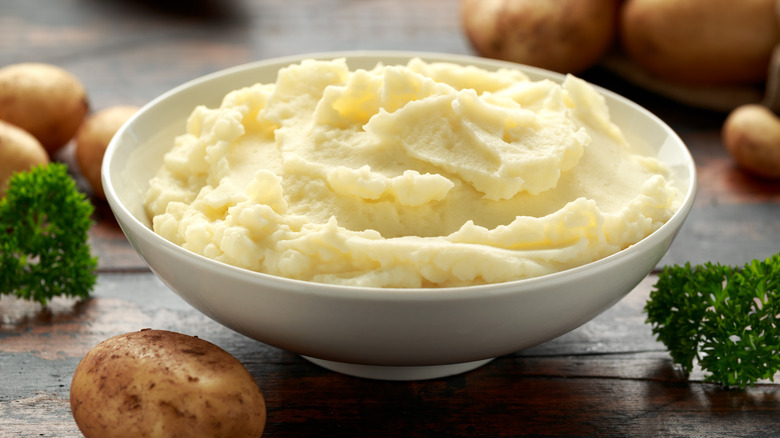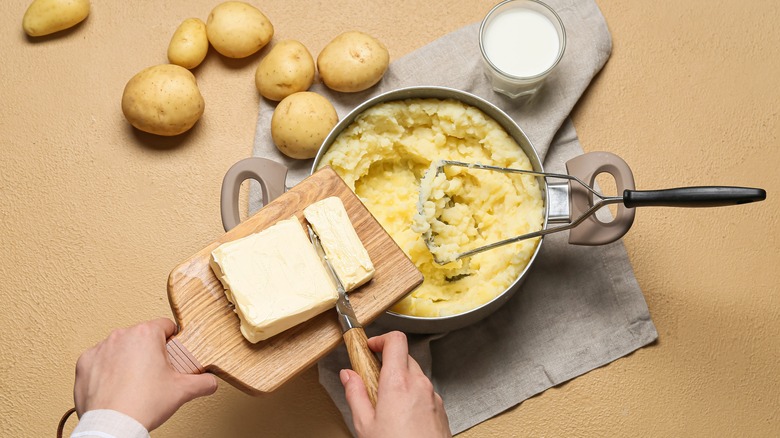The Butter Tip To Combat Gluey Mashed Potatoes
We've all been there before: After a grueling arm workout from mashing and stirring mashed potatoes, what was supposed to be smooth came out gummy and sticky. There are lots of things that can go wrong with mashed potatoes, but ending up with gluey mashed potatoes seems to be one of the most common errors. With the constant addition of liquids, cream, and butter, how did our mashed potatoes end up sticking to the roofs of our mouths?
The scientific term for this phenomenon is known as gelatinization, in which an excess amount of starch granules in the potatoes absorb water and gelatinize the mixture together. The same chemical process occurs in making cornstarch slurries: The mixture becomes thick as the granules swell and adhere to one another. While there are a number of ways this could happen, the most common contender is overmixing and mashing the potatoes, which is bound to happen if you use the wrong potato. Funnily enough, a lower starch potato will cause an excess amount of starch in your mashed potatoes because you'll overwork them into a smooth consistency.
Of course, no matter what potatoes you use, there is one way to prevent gluey mashed potatoes.
Adding butter before milk
Be sure to add butter to the mashed potatoes before the stock, milk, or cream. The order in which you add your ingredients is crucial to the chemical reactions that are occurring in your potatoes. For one, butter contains the hydrophobic fat molecules that will seal the starch granules of the potatoes. By adding butter first, your potato will be less likely to release excess starch and bloat into a stiff, tacky consistency. Since milk and broth contain more water content than butter, they could swell the starch molecules of the potatoes if there is no fat present.
You can think of butter being a protective sealant for the potatoes that give your mashed potatoes a rich flavor and smoother texture. Now, if you want to get more particular in mastering your mashed potatoes, some say that it's best to add cold butter over melted butter to mashed potatoes. The cold butter melts slowly and evenly into your hot mashed potatoes, coating the starches evenly with fat and milk solids. Melted butter, on the other hand, has separated fat and milk solids, which prevents the mixture from being consistent.
Whatever temperature of butter you use, be sure you add it to your potatoes before adding any liquids. Once the mashed potatoes get gluey, there is no going back.

